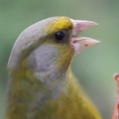Fionnáin reviewed Orwell’s Roses by Rebecca Solnit
Homage to Hertfordshire
5 stars
Rebecca Solnit is one of those brilliant writers who I love reading regardless of the content. Her respect for the craft of writing, along with her brilliant and multifaceted research methods, make her work a joy to read. Another author who I have always loved for this skill is George Orwell, particularly in his essays and nonfiction writing. So reading a book by Solnit about Orwell's nonfiction writing was just a treat.
Solnit doesn't waste too much time with biography, instead leaping into Orwell's contradictory ways of living, his politics and his home life, through the lens of his essay writing. She constructs a person through his work, and the work others have made about him. And she begins with his work not as a writer, but as a gardener who planted roses outside a rented cottage in Hertfordshire, England in the 1930s.
The rose is used by Solnit for …
Rebecca Solnit is one of those brilliant writers who I love reading regardless of the content. Her respect for the craft of writing, along with her brilliant and multifaceted research methods, make her work a joy to read. Another author who I have always loved for this skill is George Orwell, particularly in his essays and nonfiction writing. So reading a book by Solnit about Orwell's nonfiction writing was just a treat.
Solnit doesn't waste too much time with biography, instead leaping into Orwell's contradictory ways of living, his politics and his home life, through the lens of his essay writing. She constructs a person through his work, and the work others have made about him. And she begins with his work not as a writer, but as a gardener who planted roses outside a rented cottage in Hertfordshire, England in the 1930s.
The rose is used by Solnit for its metaphors, its culture, and its relationship to Orwell. She weaves in stories about Orwell's personal and political life with modern issues. The best example is when she threads together Orwell's protest writing about miners (eg. The Road to Wigan Pier) with a narrative about the modern rose trade and the mistreatment of Columbian workers. She is perfectly on point throughout the book, and it is a fluid and enjoyable read, a true homage to a writer who, like Solnit, has pushed back time and again against hegemonic structures and systems.


